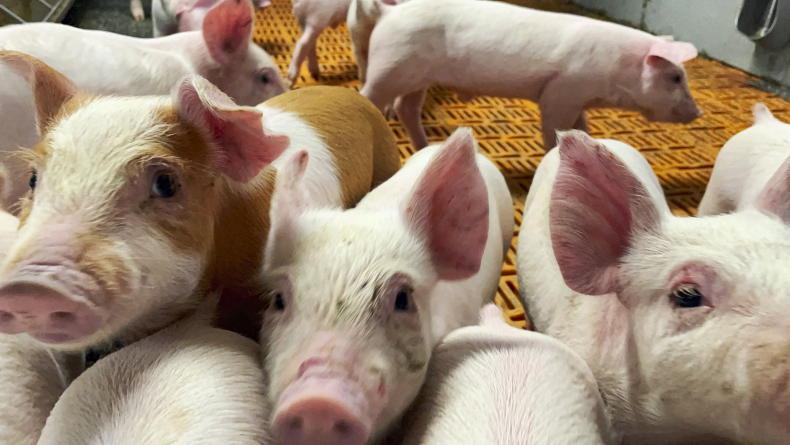The struggling pig industry got a shot in the arm on Tuesday - in Germany.
The European Commission announced that it has approved two schemes totalling €1bn under state aid rules aimed at “improving animal welfare in breeding livestock, particularly in pigs”.
The first scheme, totalling €675m, will run until the end of 2030 and will take the form of grants covering up to 60% of the cost of upgrading pig breeding sites to improve animal welfare standards.
This will include improvements to living conditions, such as climate and cooling possibilities, as well as reducing livestock density.
The second scheme, totalling €375m, will run until end of 2031. This scheme will have grants covering up to 80% of the additional costs of aligning livestock practices with providing higher welfare standards.
Bedding, electricity and cooling
The press release says these costs include providing extra roughage and bedding, as well as electricity costs for ventilation and cooling. This implies that the funds will be to cover running, rather than capital, costs.
The EU said the proposed state aid will facilitate the development of an economic activity, is necessary and appropriate to ensure that farmers will implement higher animal welfare standards and will have an incentive effect, as the measures would not otherwise be put in place.
The EU said the level of aid is appropriate and will have limited impact on competition and trade between member states. Also, the positive effects from the aid outweigh any potential distortion of competition and trade.
40% grants in Ireland
Under TAMS III, pig farmers in Ireland can qualify for 40% grants for eligible expenditure of up to €500,000. Teagasc’s pig sector outlook for 2024 highlighted the lack of capital investment in the sector in recent years due to difficult trading conditions.
It said this would lead to higher costs in the short term and reduce sectoral performance efficiencies in future.
This package means Irish producers are at a considerable disadvantage
The higher grant levels now available in Germany, plus the grants covering 80% of the increase in some input costs, seem to put the German pig farmer at an advantage over Irish pig producers.
Irish Farmers' Association pig committee chair Roy Gallie did not mince his words when contacted for comment on the approval of the German measure.
“How do you manage to fire €1bn at the industry in one member state and not distort competition across the EU?
"This package means Irish producers are at a considerable disadvantage to their German counterparts.
"Profitability and animal welfare are pan-European issues that require a pan-European response, not one that distorts the market for the benefit of German pig farmers and to the cost of Irish farmers.”






 This is a subscriber-only article
This is a subscriber-only article











SHARING OPTIONS: